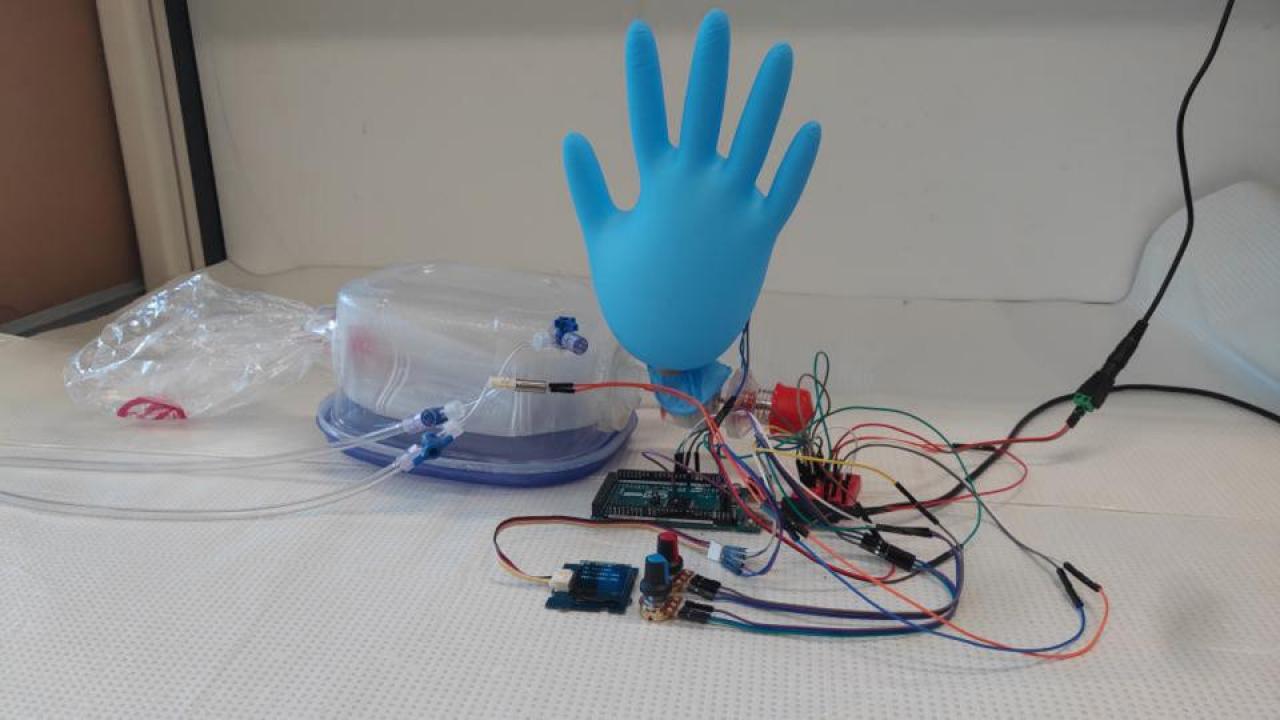
17 Researchers Win COVID-19 Seed Grants
UC Davis researchers have a role in nine of the 25 COVID-19-related projects that recently received seed grants averaging about $50,000 from CITRIS and the Banatao Institute, a systemwide UC initiative headquartered at Berkeley.
Here are the projects with UC Davis researchers, 17 in all, listed with colleagues from other campuses. The projects are divided by award category.
Clinical Care/Therapeutics
- “A Multicampus Infrastructure to Advance Telehealth Implementation for Low-Income Californians in Response to COVID-19” — Lorena Garcia, UC Davis Department of Public Health Sciences; Denise Payan, UC Merced; and Hector Rodriguez, UC Berkeley. The proposed project builds data infrastructure enabling researchers to study how replacing face-to-face visits with telemedicine services affects clinical outcomes for low-income patients.
- “Augmented Reality Video-Assisted Clinical Care for Remote Management of COVID-19” — Ian Julie, UC Davis Department of Emergency Medicine, and Narges Norouzi, UC Santa Cruz, aim to extract clinically useful information from a live video stream, augmented with patient information such as blood oxygen saturation level, respiratory rate and heart rate in real time. The goal is a tool to enable clinicians to rapidly evaluate COVID-19 patients, including remotely.
Contact Tracing
- “Discovery of Symptom Phenotypes and Trajectories for COVID-19 Adaptive Interventions” — An all-UC Davis team — Jill Joseph and Katherine Kim, Betty Irene Moore School of Nursing; Xin Liu, Department of Computer Science; and Joanne Natale, Department of Pediatrics — plans to create an innovative science platform to collect comprehensive data on patient symptoms and test results and apply machine learning methods to predict infection and illness. This will help make better use of public health resources.
Data Analytics/Modeling
- “Estimating the Local Spread of COVID-19 Around Long-Term Care Facilities in California Using Social Interaction Networks With Spatial Information” — Martin Cadeiras and Diego Pinheiro, both of the UC Davis Department of Internal Medicine; and Miriam Nuño, UC Davis Department of Public Health Sciences. This project aims to develop new models to predict how outbreaks of COVID-19 in long-term care facilities can affect local communities, based on social interaction networks and human mobility data.
Equipment
- “AmbuBox: Fast-Deployable, Low-Cost Ventilator for COVID-19 Emergent Care” — Andrew Li, UC Davis Department of Surgery, and Tingrui Pan, UC Davis Department of Biomedical Engineering, say their AmbuBox could be built for less than $100 in parts, using a controllable pneumatic enclosure and readily available standard manual resuscitator (AmbuBag),. Read more and watch a video of the AmbuBox prototype.
- “Vine Robot for Automated Nasopharyngeal Swabbing” — Gabriel Elkaim, UC Santa Cruz, and Lin Zhang, UC Davis Department of Neurology, intend to develop a flocked polyester nasopharyngeal swab that is both narrower and more flexible for coronavirus testing, and automate the process — using a robot to carry the swab tip into the nose on an extending “vine.” The new swab would lessen patient discomfort, and the vine robot would lessen the risk of health care workers becoming infected.
Testing
- “Ionizing Air to Trap COVID-19 Virus to Prevent Airborne Transmission” — Saif Islam, UC Davis Department of Electrical and Computer Engineering, has a goal of developing an air ionizer and purifier that can trap viruses and prevent their spread in hospitals, offices and manufacturing plants. The device will be based on semiconductor nanostructures and will avoid generating harmful ozone gas.
- “At-Home Personalized Monitoring of Exhaled Breath Inflammatory Biomarkers for Known or Suspected COVID-19 Patients” — Cristina Davis, UC Davis Department of Mechanical and Aerospace Engineering; and Nicholas Kenyon and Michael Schivo, UC Davis Department of Internal Medicine. This team has developed a rapid, noninvasive diagnostic platform for monitoring lung infections from exhaled breath. The test can be self-administered and subjects who are sent home to self-quarantine can collect their exhaled breath samples.
- “Integrated Quantitative Microbial Risk Assessment and Geospatial Analysis of SARS-CoV-2 in Wastewater for Vulnerable Populations” — Maureen Kinyua, UC Davis Department of Civil and Environmental Engineering; and Colleen Naughton, UC Merced. This project will use information technology to quantify the associated risk of SARS-CoV-2 infection for wastewater treatment operators and neighboring communities, developing a vulnerability map of 38 wastewater treatment plants in the Bay Area.
See all of the projects that won COVID-19 seed grants from CITRIS and the Banatao Institute.